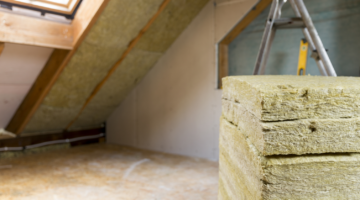
What is the Energy Company Obligation?
The Government has announced this week that it is to change one of its key components of domestic energy policy, the Energy Company Obligation (ECO). This change comes only a year after the scheme was launched and is the result of aggressive lobbying from the energy companies.
In May 2010 the Coalition pledged to become the ‘greenest government ever’, and since then it has tried to live up this pledge by implementing schemes such as the Renewable Heat Incentive (RHI) for both commercial and domestic properties and the Green Deal & ECO. However, the Government has already been accused of watering down these fledgling ‘green’ policies.
To those reading this who are unaware of what the Green Deal and ECO are; put simply they are the two schemes (that can be used in conjunction with one another) that are charged with making homes more energy efficient. They allow households to improve the energy efficiency of their homes without have to make any big up-front investment and in some cases measures can be installed completed free of charge.
The Green Deal part is for those homes that want to increase their energy efficiency but don’t have the funds to necessarily do this straight away. The Green Deal allows homeowners to take out a fixed loan that they repay back through the savings they make on their electricity bills; whereas ECO is the grant component funded by the energy companies that fully or partially pays for energy efficiency measures. It can work standalone to help pay for insulation and new boilers for vulnerable members of society or partially subsidise Green Deal measures like solid wall insulation, which would otherwise be too cost prohibitive in the free market.
Where ECO gets a bit more complicated is that it actually has 3 components: Home Heating Cost Reduction Obligation (HHCRO), Carbon Saving Community Obligation (CSCO) and the Carbon Emission Reduction Obligation (CERO) – this year the Government committed to £1.3bn of home improvement funding and the energy companies were obligated to pay for these improvements.
In the following sections we look at the changes the Government are making to the ECO scheme.
Changes to ECO – impact analysis
Home Heating Cost Reduction Obligation (HHCRO)
This part of ECO is designed to help the most vulnerable members of society get insulation and cost saving heating measures to be installed. So for example if you are on pension credit you may be eligible for a free boiler replacement as well as loft and cavity wall insulation – this is subject to a detailed eligibility assessment.
Impact of policy change: the Government has committed to maintaining the funding levels for this particular obligation and has even gone as far as extending the funding at the same level for a further two years (until 2017).
Although on the face of it, there is no change to this element of ECO, we are awaiting news on whether the funding will move from an obligation on the energy companies to general taxation.
Carbon Saving Community Obligation (CSCO)
This particular obligation was set-up to assist with insulation measures for some of the most deprived areas of the country as defined by the ECO order. So in practice if your postcode is in one of these LSOAs (sub-division of a district), then your home may be eligible for free insulation such as loft, cavity and solid wall.
Impact of policy change: Like the HHCRO funding, the Government has promised that the amount available will not be cut but in fact they are going to maintain the same level of funding for an additional 2 years (till 2017).
The combined investment of the HHCRO and CSCO is worth around £540million per year and the Government is saying this will remain while they may act in the future by taking other elements of the ‘social and environmental’ subsidy off your current energy bills to general taxation. We will let you know as soon as we know more!
Carbon Emission Reduction Obligation (CERO)
The CERO part of the obligation was designed to help insulate some of the most energy inefficient solid wall and ‘hard-to-treat’ cavity wall properties, which is integral to the delivery of the Green Deal. Insulating these homes would have the biggest impact on reducing heating costs and tackling carbon emissions, but they are also more costly to target.
Currently the Government have set aside about £760million per year for investing in this area, however the recent changes in policy are going to hit this quite hard.
Impact of the policy change: A 33% cut will translate to a cut in funding from £760million to around £507million per year. This has been translated to a cut in the target of 80,000 to 25,000 (or 100,000 by the end of 2017) properties being insulated under this part of the scheme.
Also the priorities have slightly changed – so cavity wall and loft insulation will also be offered under this obligation as they are cheaper measures, so the theory is that ‘more’ could be done with less resources.
While this part of the obligation will still be funded by the energy companies, time will tell whether more pressure at some point in the future will force further cuts to these programmes.
Other changes proposed to domestic energy efficiency programmes
With the current reform of ECO, the Government has also had a chance to reform the current Green Deal. The main changes proposed here are further ‘cash giveaways’ to the tune of £540million, helping new home buyers invest in energy efficiency and increasing the funds available for the roll-out of this scheme on a street-by-street / community basis.
Find out whether the changes to ECO are justified – visit page 2
Pages: 1 2












No Comments yet! Be the first one.